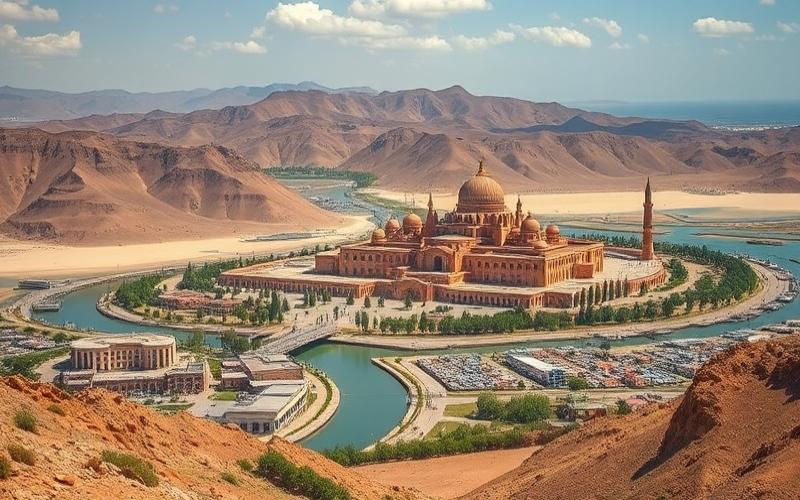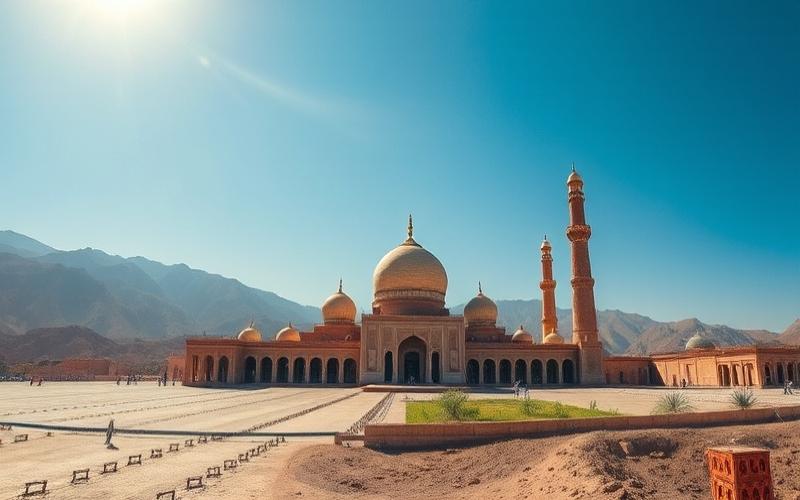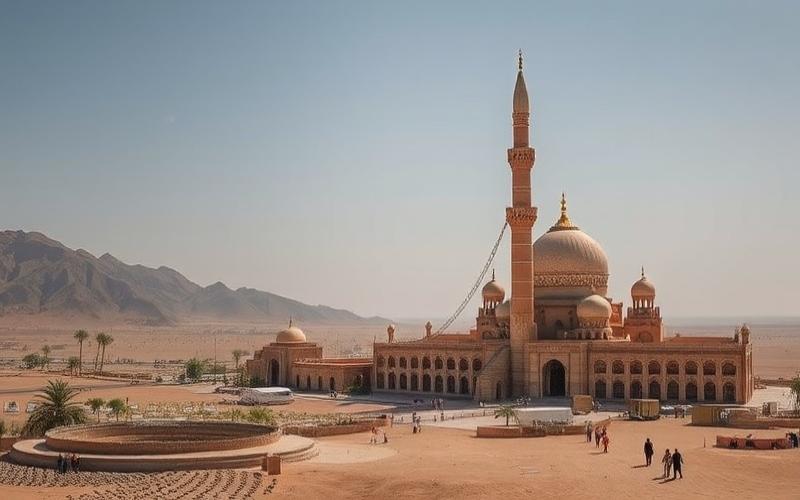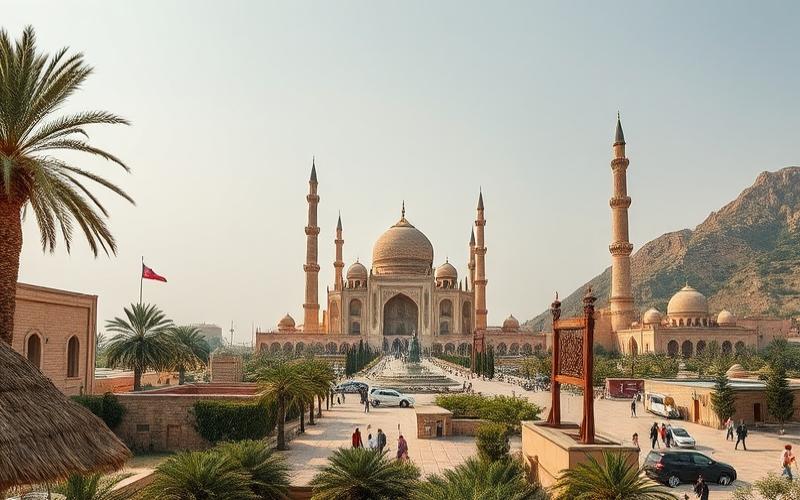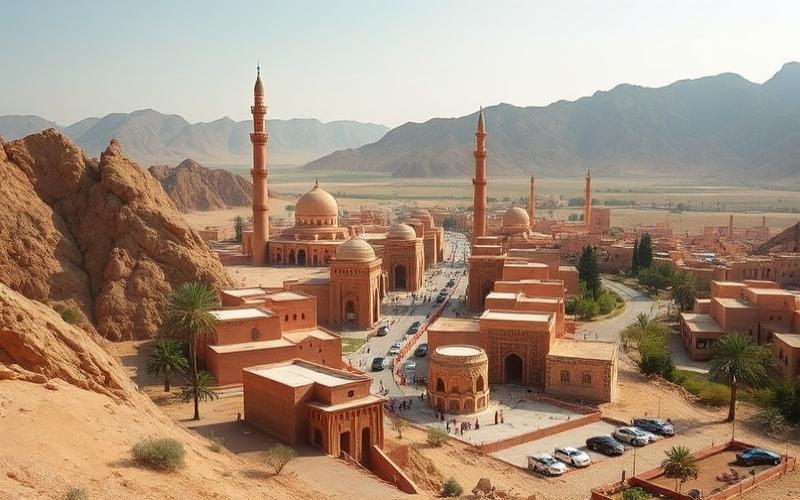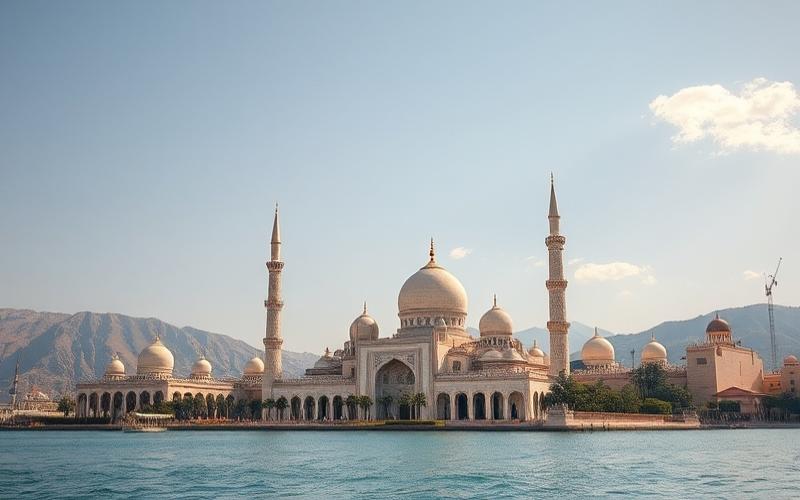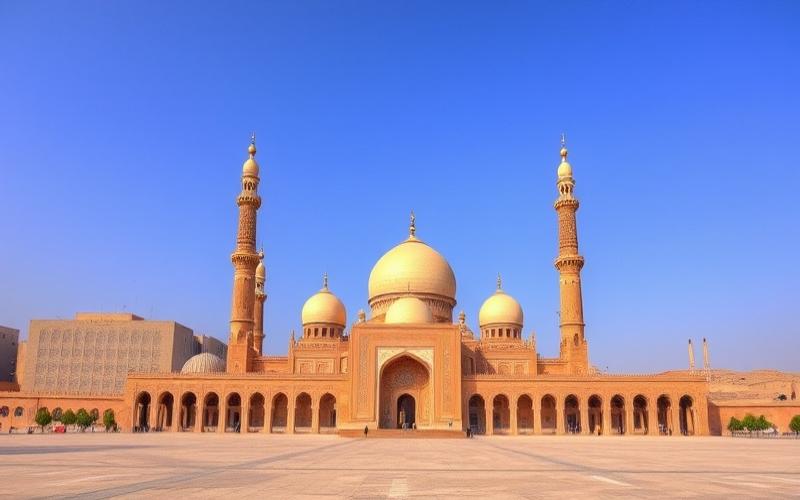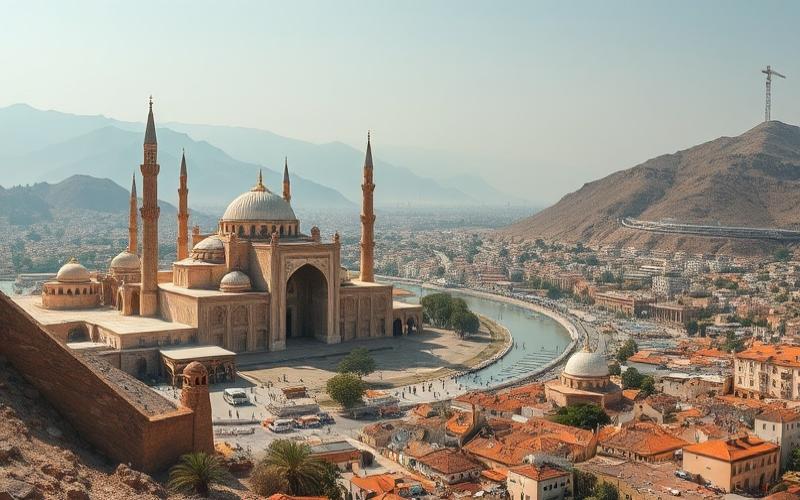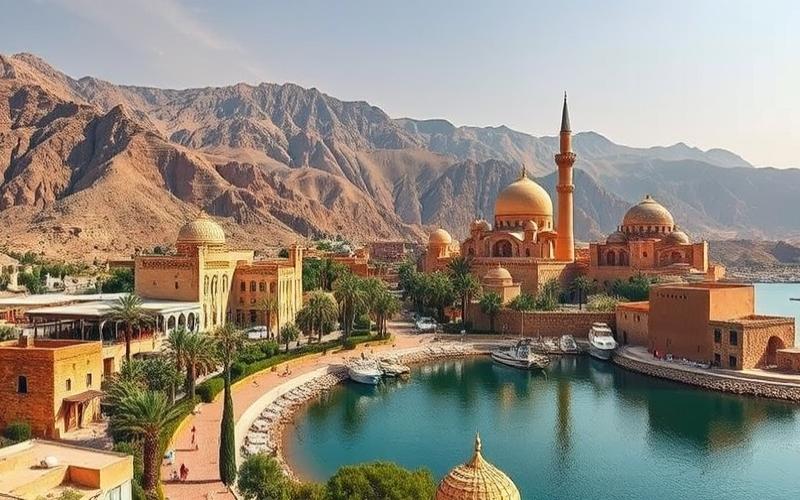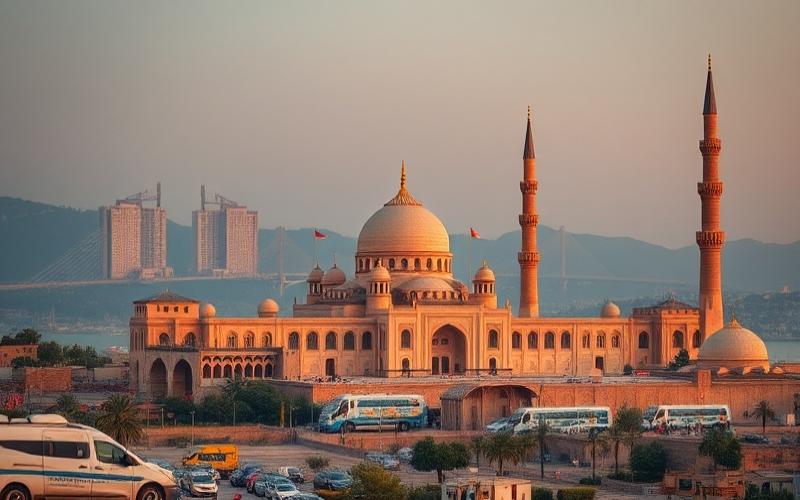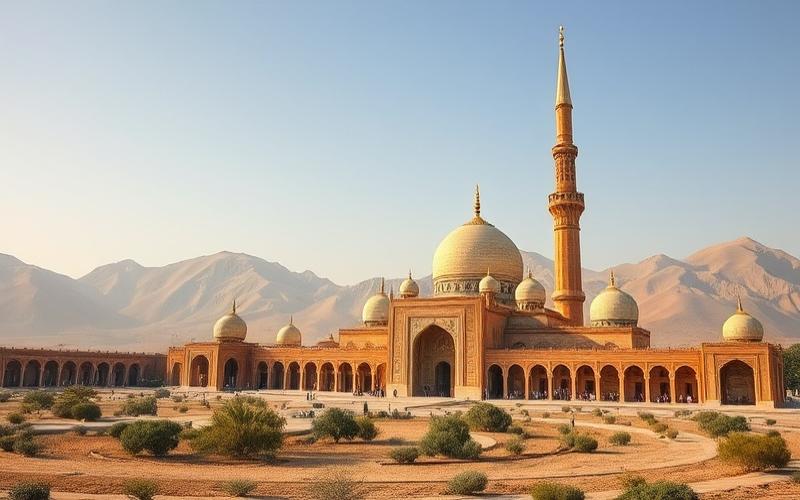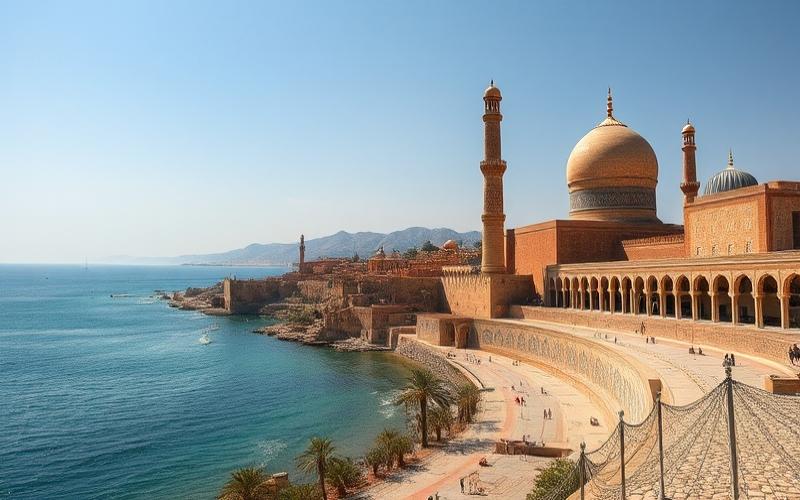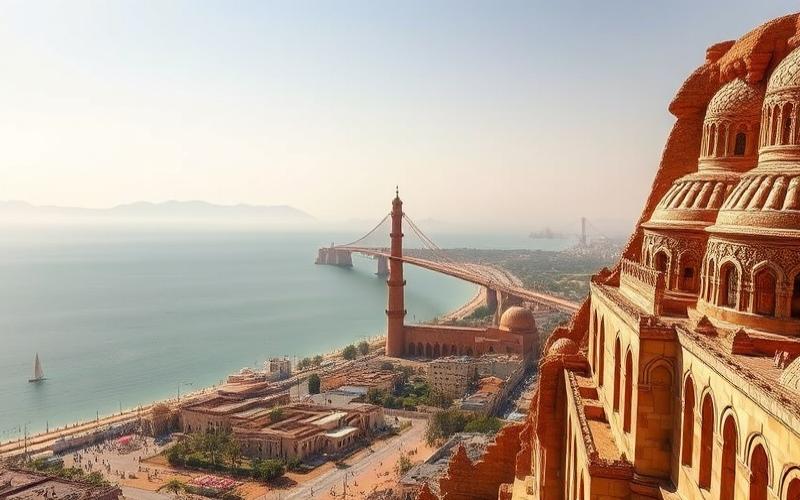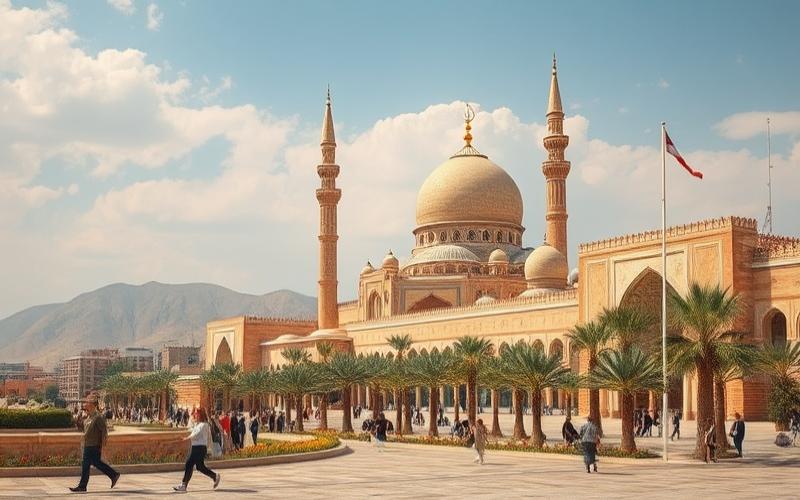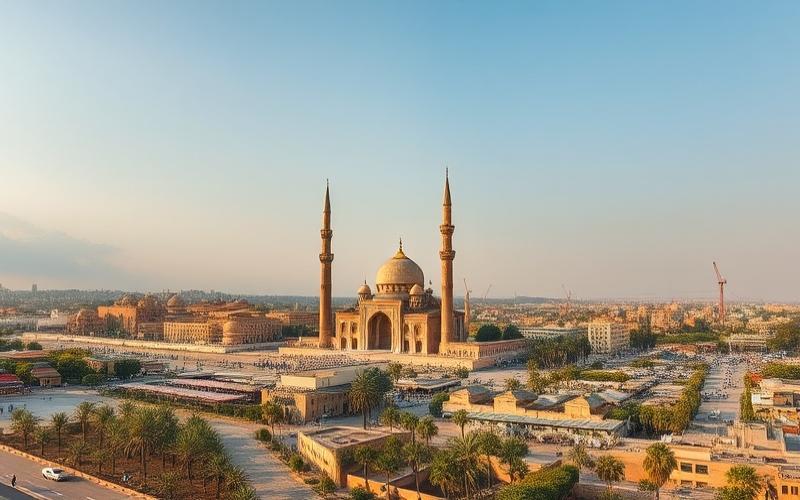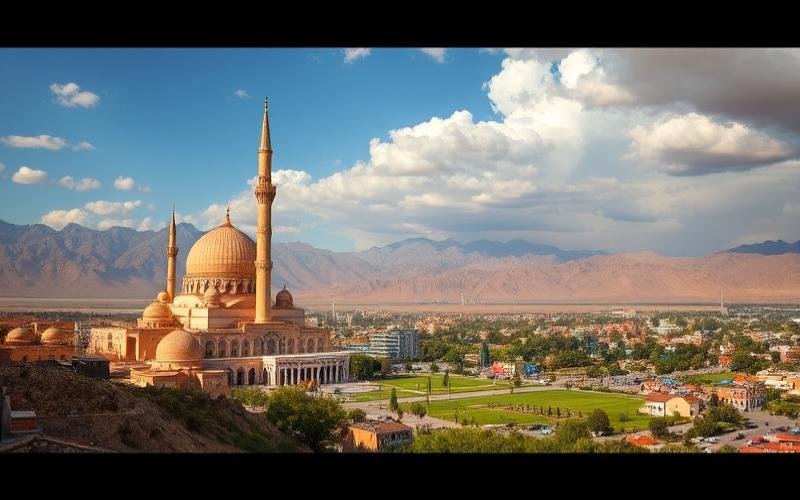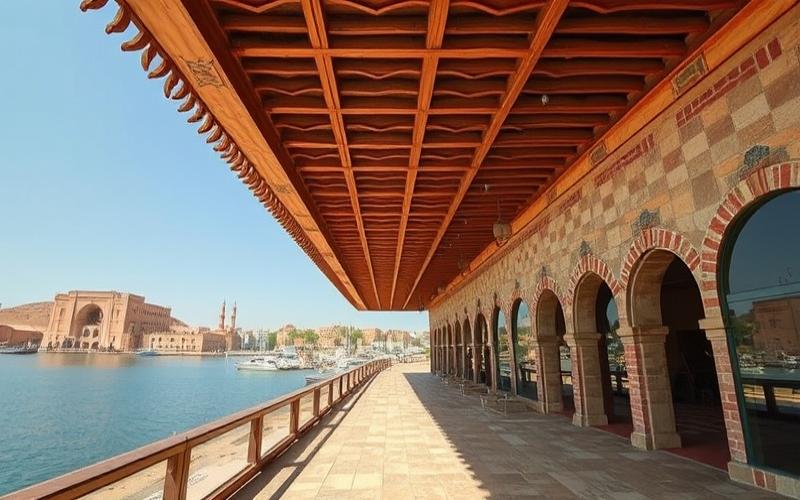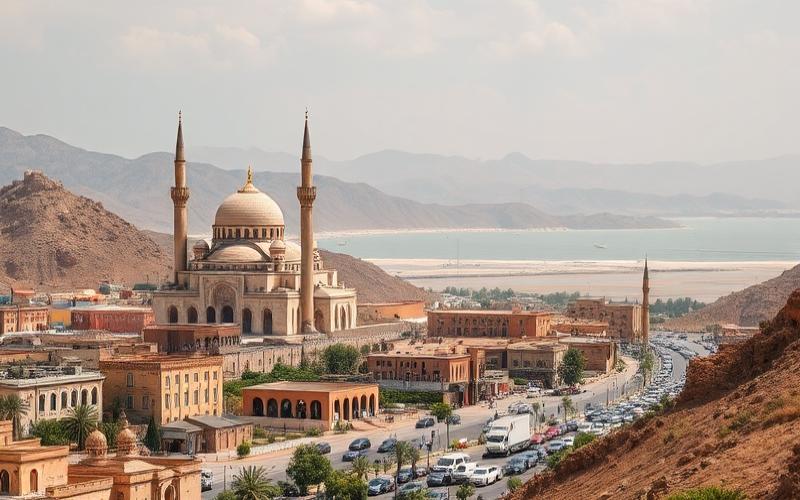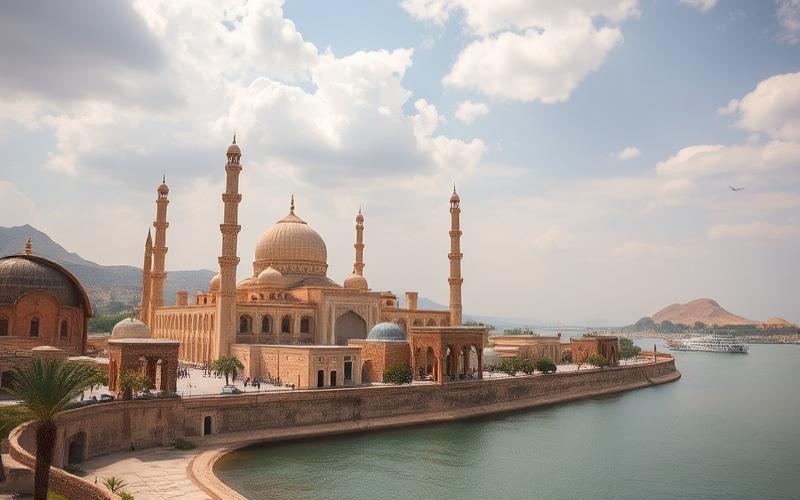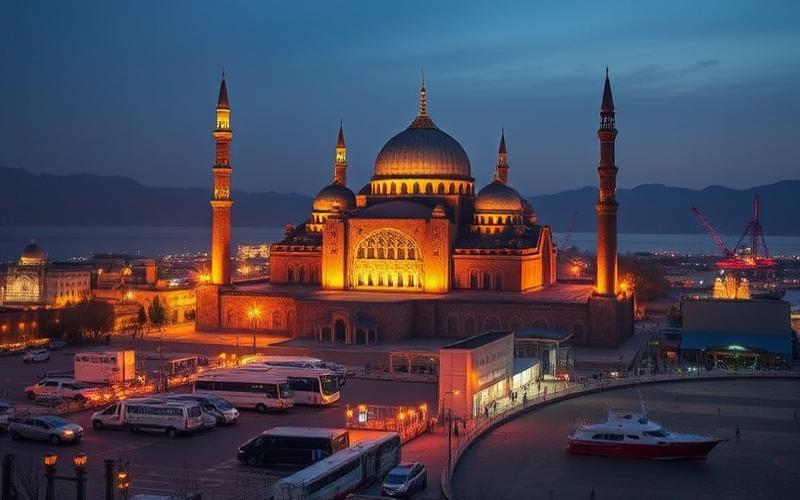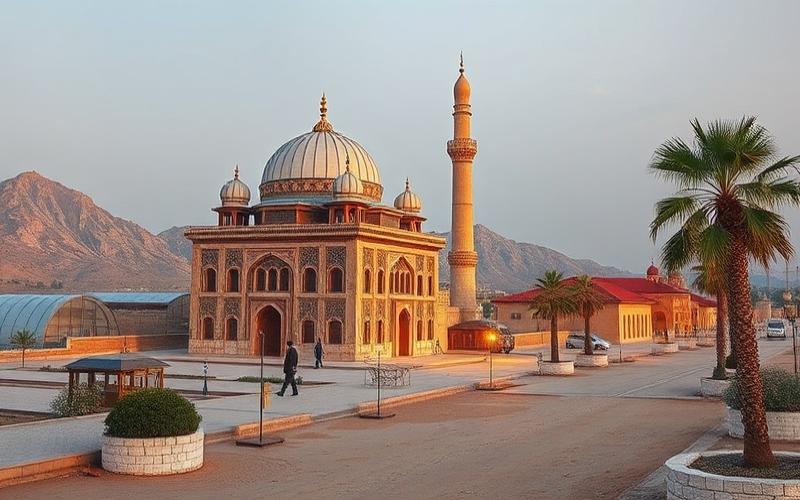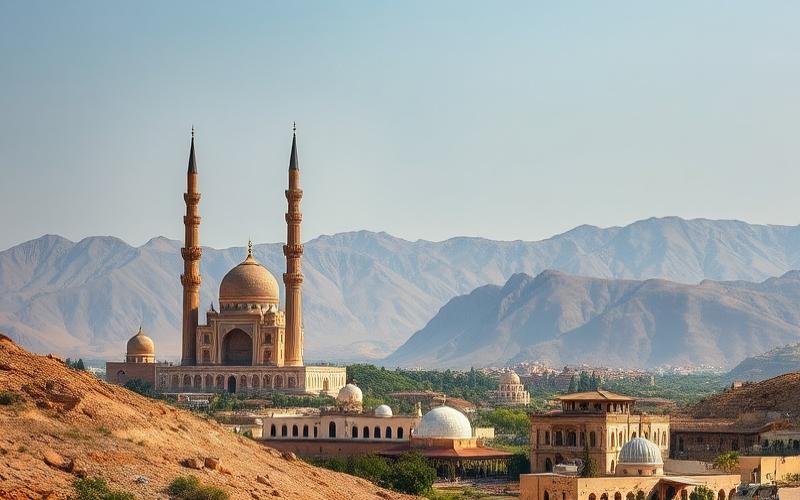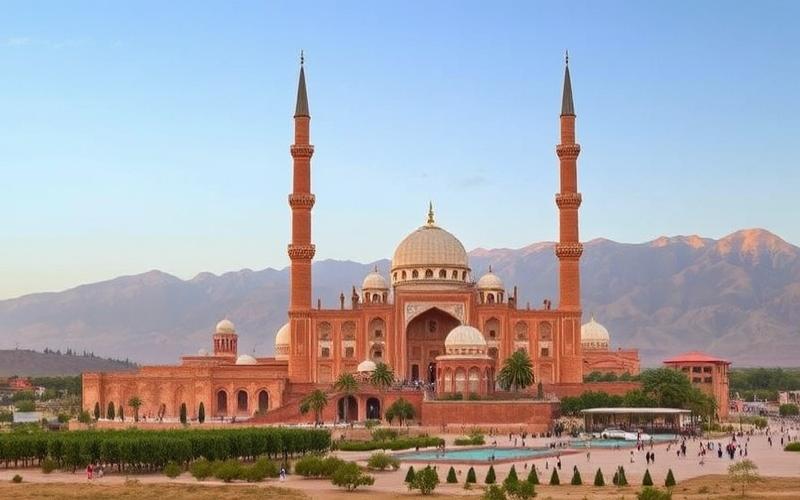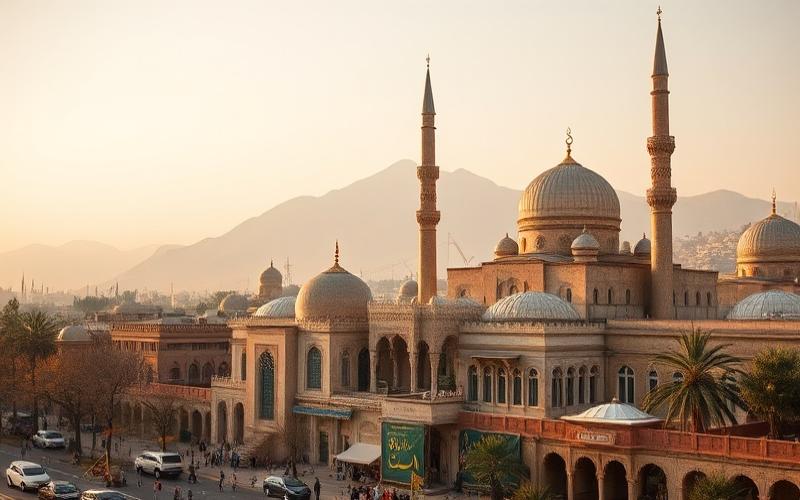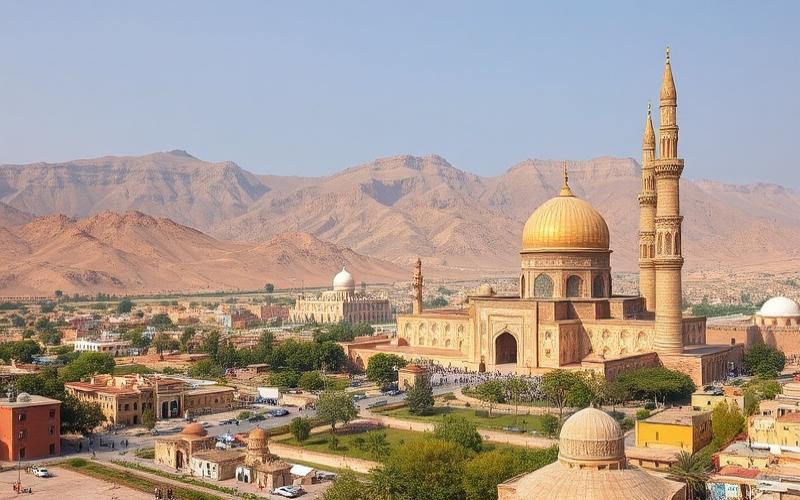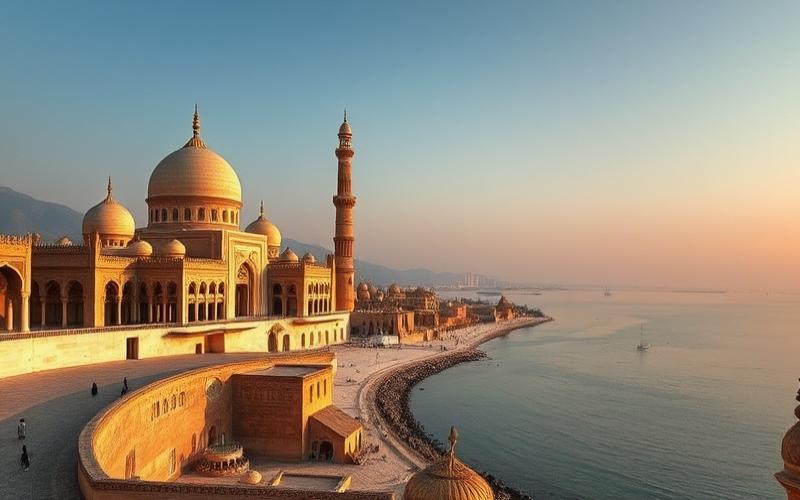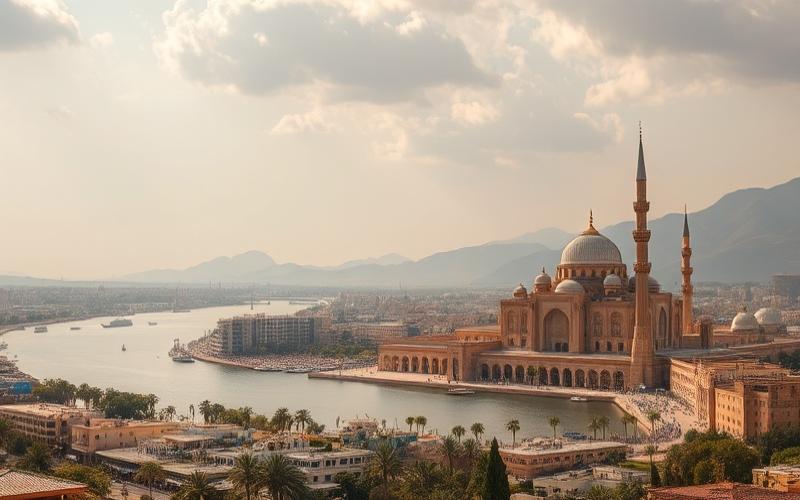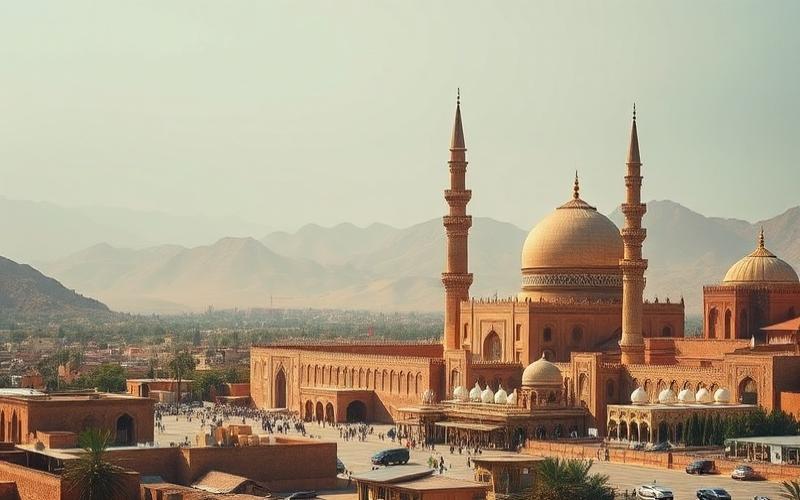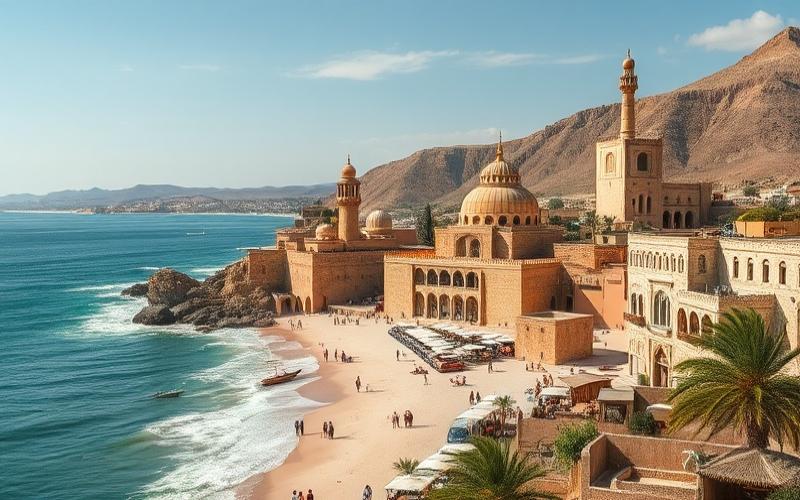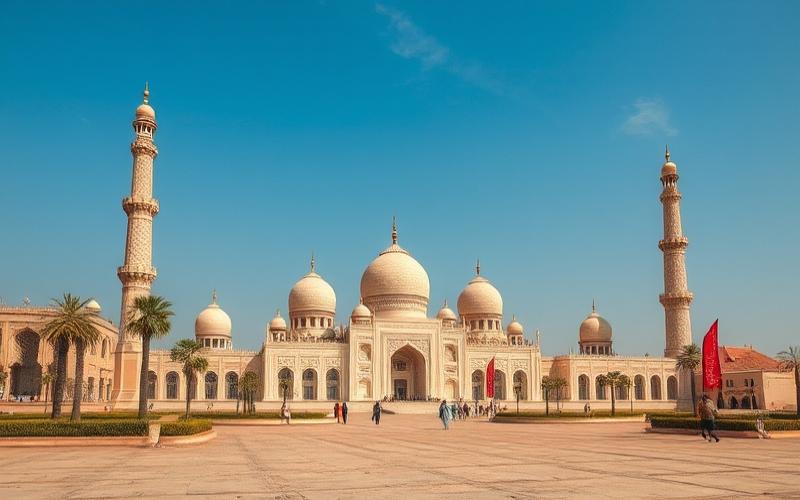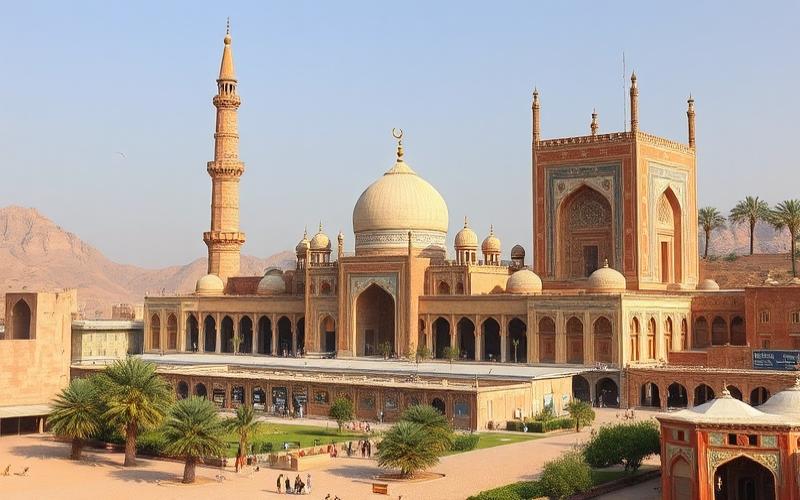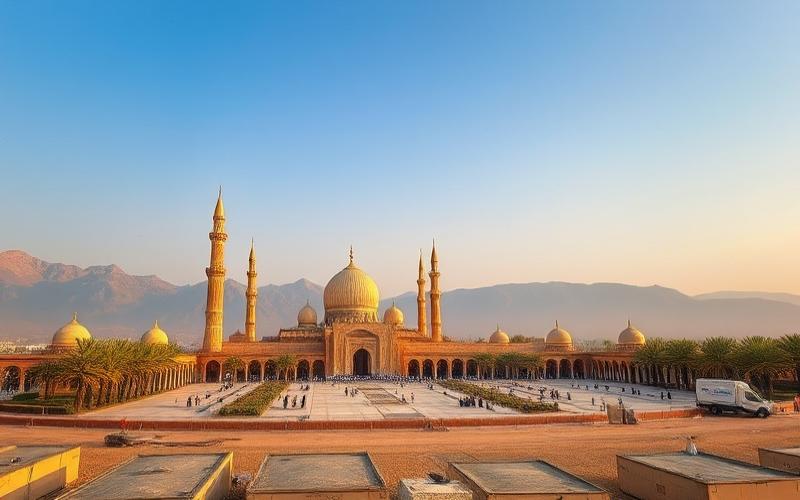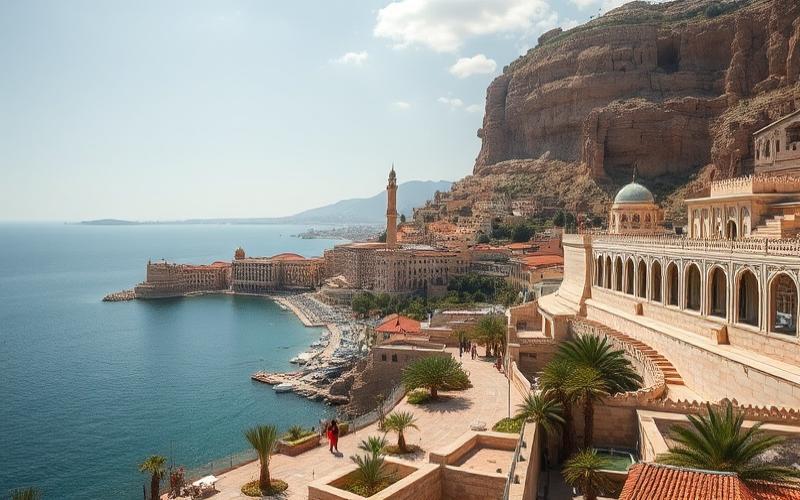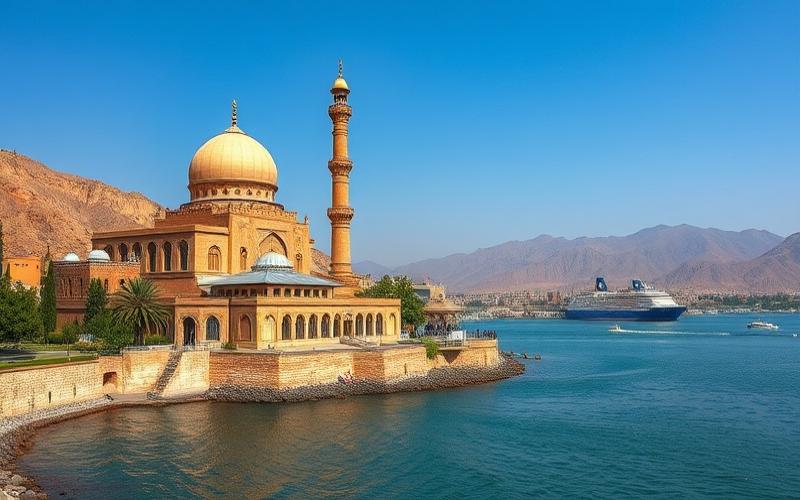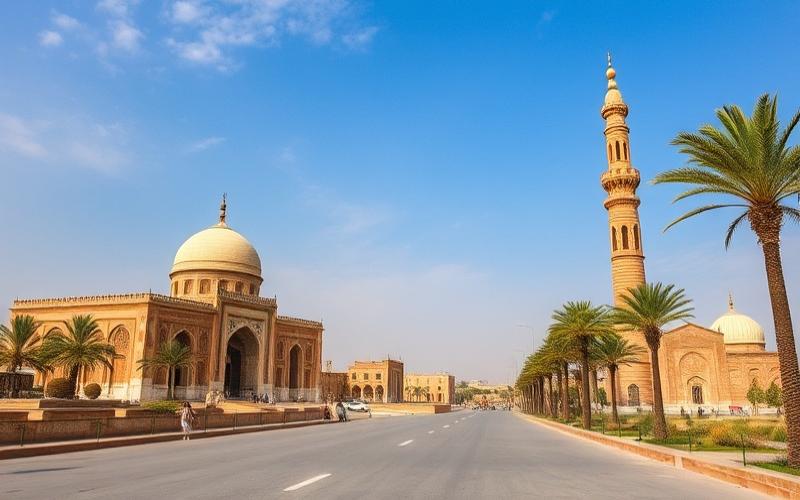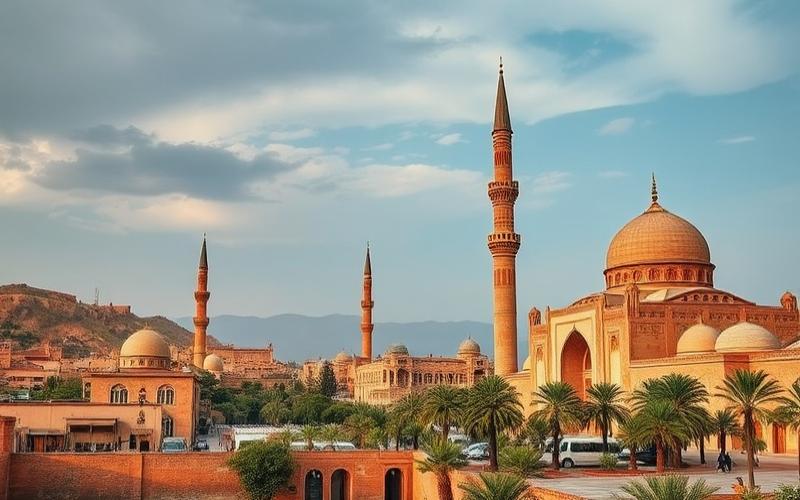
 Published on and written by Cyril Jarnias
Published on and written by Cyril Jarnias
Over the years, Bahrain has seen its legislative landscape evolve, particularly regarding foreigners’ rights. In 2025, these developments are taking a new turn with unprecedented legislative measures aimed at balancing the country’s economic needs while addressing the social challenges associated with a significant expatriate population.
The recent reforms highlight an increased commitment to strengthen the rights of immigrant workers while ensuring national security and sustainable economic development.
This article provides an in-depth exploration of these impactful legislative changes, offering insight into the issues and implications for foreigners living in Bahrain today.
Analysis of Recent Immigration Reforms in Bahrain
Recent Reforms Introduced by the Bahraini Government Regarding Immigration:
- Ban on Converting Visit Visas to Work Permits
In January 2025, Parliament approved a bill that explicitly prohibits converting visit visas into work permits. This reform amends the 1965 law on immigration and residence of foreigners and aims to prioritize job opportunities for Bahraini citizens. The text also cancels conflicting regulations and introduces implementation guidelines. - Suspension of the “Flexible Work Permit Scheme”
In October 2022, Bahrain suspended the flexible work permit system, which allowed foreigners to work without employer sponsorship. This suspension stems from reforms aimed at reducing abuses related to non-renewal of permits and strengthening employer protection. - Introduction of Permanent Residency for Investors (“Golden Residency Visa”)
As part of the 2025-2026 economic recovery plan, Bahrain has implemented a permanent residency visa for investors, entrepreneurs, and highly skilled professionals to attract foreign talent and capital and enhance economic diversification. - End-of-Service Benefit Reform
Since March 2024, the end-of-service benefit system requires private sector employers to make monthly contributions to the General Organization for Social Insurance (SIO), which are paid directly to migrant workers at the end of their contracts.
| Reform | Main Measure | Official Motivation | Stakeholder Reactions | Expected Impact | International Compliance |
|---|---|---|---|---|---|
| Visit Visa Conversion Ban | Prohibition on converting visit visas to work permits | Promote national employment | Government support, NGO criticism | Reduced reliance on migrant labor | Risk of restricted mobility |
| Flexi-Permit Suspension | Elimination of work permits without sponsorship | Combat abuses, protect SMEs | Civil society concerns | Reduced precariousness, more control | Criticized by NGOs |
| Investor Residency | Permanent visa for investors and professionals | Attract capital and skills | Private sector support | Increased foreign investment | Compliant with standards |
| End-of-Service Benefit | Mandatory monthly contributions from employers | Reduce financial pressure, protect workers | SME opposition, praised by ILO | Enhanced security for migrant workers | Approved by ILO |
Stated Motivations by Authorities:
- Strengthen national employment and reduce dependence on foreign labor.
- Better control migration flows and limit abuses of flexible permit systems.
- Attract foreign investment and skilled expertise to support economic diversification.
- Guarantee the social rights of migrant workers by securing benefit payments.
Reactions from Various Stakeholders:
- Civil Society and NGOs:
- Concerns about restricted migrant mobility and increased risk of informal work.
- Criticism over lack of consultation before certain reforms, especially regarding benefits.
- International Organizations:
- The ILO has praised the new end-of-service benefit system as a major advancement for migrant workers’ rights.
- Private Sector and SMEs:
- Concerns about increased administrative and financial burdens, particularly for small businesses.
Concrete Examples of New Policies:
- Inability for a visitor to change status to work locally without leaving and obtaining a dedicated visa.
- End of the Flexi-Permit, which provided an independent work solution for many migrants.
- Launch of the “Golden Residency Visa” for investors and highly skilled professionals.
- Mandatory monthly payment of end-of-service benefits through SIO.
Critical Assessment of Compliance with International Human Rights Standards:
Reforms related to social protection for migrant workers (end-of-service benefits) are recognized as compliant and innovative by the ILO.
Restrictive measures on mobility (visa conversion ban, end of Flexi-Permit) raise criticism about limiting freedom of movement and access to employment for foreigners, questioning compliance with non-discrimination principles and the right to work.
The lack of systematic consultation with civil society and economic stakeholders is regularly highlighted as a weakness in terms of good governance.
Expected Impact on the Immigrant Community and Local Economy:
For Migrants:
- More secure access to end-of-service benefits.
- Reduced opportunities to obtain local employment through temporary visas.
- Increased risk of undeclared work or precariousness.
For the Economy:
- Incentive for workforce nationalization.
- Mitigation of dependence on low-skilled foreign workers.
- Expectation of capital and talent influx through investor residency.
Key Takeaway: Bahrain’s reforms demonstrate a willingness to modernize the labor market while strengthening social protection, but they spark intense debate about compliance with international human rights standards and the ability to maintain a balance between economic attractiveness and social justice.
Good to Know:
Recent reforms in Bahrain include facilitating visa procedures and introducing a flexible work permit system, motivated by the desire to boost the economy while partially respecting international standards; however, civil society and some international organizations express reservations about their impact on migrant workers’ rights.
Impact of New Legislation on Expatriates
In 2025, Bahrain adopted a series of legislative reforms that profoundly redefine the place of expatriates in its social and economic fabric. These measures, affecting visas, work permits, and employment regulation, are part of a regional trend to modernize the labor market while addressing specific national challenges.
Key Aspects of the New Legislation
- Visa and Residence Permits: Bahrain has expanded access to the flexible permit (Flexi Permit), now allowing more qualified expatriates to obtain independent status without a local sponsor. This system facilitates professional mobility and offers greater contractual freedom. Simultaneously, the Golden Visa (10-year renewable) is extended to real estate investors (from BHD 200,000), experienced employees (over 5 years with a salary above BHD 2,000/month), retirees with high pensions, and exceptional talents.
- Labor Market Regulation: The “Bahrainization” policy is strengthening: employers are required to prioritize hiring nationals in certain key sectors. Strict quotas are imposed to ensure Bahrainis occupy an increasing share of skilled positions.
- Social Protection: Expatriates still do not benefit from the local public system but must be covered by private health insurance provided by their employer. An end-of-service benefit fund is mandatory for all foreigners working in the private sector.
- Work Rights: New laws prohibit discrimination based on gender, origin, or religion and strengthen protection against workplace harassment. Accelerated mechanisms have been established to handle disputes between employers and employees.
| Visa/Permit Type | Main Conditions | Key Benefits |
|---|---|---|
| Flexi Permit | Skilled workers without sponsorship | Increased professional mobility |
| Golden Visa | Investors/employees/retirees/exceptional talent | Long-term residence |
| Family Visa | Close members sponsored by Bahraini residents or Golden Visa/Flexi Visa holders | Facilitated family reunification |
Impact on Expatriates’ Daily Lives
The new provisions offer highly skilled expatriates more autonomy from traditional sponsors, improving their wage negotiation power and long-term career prospects. However:
“Many still feel increased pressure regarding local quotas, especially those working in education or health where these rules are strictly enforced,” reports a European consultant based in Manama for five years.
Access to public services remains unequal: while some Golden Visa holders now benefit from a CPR card facilitating local administrative procedures (banking, housing), many dependent expatriates still need to go through their employer to open a bank account or rent an apartment.
The social issue remains central:
“We have gained flexibility, but there is still a lack of real public health coverage accessible to all,” explains Nadia K., an Indian community leader active with low-skilled migrant communities.
Comparison with Neighboring Countries
Bahrain stands out for its proactive approach to the Flexi Permit – a unique system in the Gulf – while its neighbors remain attached to the traditional kafala system where any job change requires prior employer/sponsor approval:
- United Arab Emirates: Gradual introduction of long-term visas (“Green Visa”) but strong sponsor role maintained until contract end.
- Saudi Arabia/Qatar/Kuwait: Very slow relaxation of kafala; limited social rights even after recent reforms.
- Oman: Intermediate policy; less restrictive local quotas than Bahrain but absence of a truly flexible framework like the Free Permit/Flexible Permit in its northern neighbor.
In summary,
While Bahrain is moving towards more legal flexibility for certain privileged categories of foreigners through innovative programs like Golden Visas & Flexible Permits, daily reality remains contrasting depending on socio-professional profiles: some find significant improvement in living/working conditions while others continue to suffer side effects of local nationalist prioritization policies (“Bahrainization”).
Good to Know:
The new legislation adopted in Bahrain in 2025 simplifies obtaining work permits for expatriates but imposes stricter restrictions on visa transfers between employers, prompting significant adjustments in the expatriate community. Compared to other Gulf countries, Bahrain now offers broader access to public services but remains cautious about social rights granted to non-nationals.
Prospects for the Evolution of Foreigners’ Rights in Bahrain
Bahrain is currently undergoing a period of significant transformation in its migration policies, marked by major reforms redefining the reception and management of foreign nationals. These changes are part of a regional integration and administrative modernization approach that will have lasting repercussions on the kingdom’s attractiveness.
Recent Visa System Reforms
Bahraini authorities have implemented substantial modifications concerning visit visa conversions, effective February 12, 2024. The new regulatory framework eliminates the possibility of automatic conversion of tourist visas into work or family residence permits, now requiring mandatory Bahraini sponsorship. This measure is accompanied by a drastic increase in conversion fees, rising from 60 Bahraini dinars (160 USD) to 250 Bahraini dinars (663 USD).
Simultaneously, the Labor Market Regulatory Authority (LMRA) launched an integrated electronic system on July 1, 2024, for managing domestic worker permits, allowing employers to fully process applications, renewals, and terminations online via the Expatriate Management System (EMS).
Impact on Foreign Communities
These reforms generate differentiated consequences depending on categories of foreign nationals. Skilled workers with local sponsorship see their procedures simplified through digitalization, while economic immigration candidates without prior sponsors face increased financial barriers. This orientation clearly favors profiles sought by the Bahraini economy while discouraging unplanned immigration.
The maintenance of the kafala system continues to particularly affect migrant workers, especially predominantly female domestic employees, who remain excluded from essential protections like weekly rest days, paid overtime, or paid sick leave.
Regional Integration and GCC Unified Visa
The most ambitious initiative concerns the introduction of a unified tourist visa for the six Gulf Cooperation Council (GCC) countries, approved during the 40th meeting of Interior Ministers in Muscat. This revolutionary system will allow visitors to stay for a maximum of 15 days across the entire region with a single authorization, primarily targeting European, American, and Asian tourists.
| Advantage | Description | Expected Impact |
|---|---|---|
| Administrative Simplification | Single application for six countries | Increase in regional tourism |
| Tourist Attractiveness | Facilitated access to Gulf destinations | Economic diversification |
| Regional Integration | Harmonization of migration policies | Strengthened GCC cooperation |
Evolution Prospects Until 2025
Economic factors clearly steer reforms towards increased selectivity, favoring profiles contributing to national development. The rise in conversion fees aligns with this logic of promoting local employment and reducing worker exploitation. The extension of midday work bans from two to three months starting in 2025 demonstrates growing attention to working conditions, though deemed insufficient by international observers.
On the social and political front, Bahrain maintains restrictions on expression, association, and assembly that indirectly influence migration policies. This security-oriented approach may persist, conditioning the reception of foreign nationals on political stability criteria.
International and Regional Collaborations
Harmonization with GCC standards constitutes the main axis of regional cooperation. The unified visa represents a historic convergence of Gulf migration policies, potentially foreshadowing other integration initiatives. This approach draws inspiration from European models while preserving national specificities.
Partnerships with international labor organizations could also evolve, particularly regarding migrant worker protection. The introduction of the wage protection system and collection of end-of-service contributions by the General Organization for Social Insurance since March 2024 indicate a willingness for gradual improvement of international standards.
The evolution of Bahraini migration policies until 2025 will likely move towards a delicate balance between economic attractiveness, regional integration, and security control, in a context of accelerated digital transformation and growing international pressure for improved migrant worker rights.
Good to Know:
Planned reforms could strengthen the regularization of expatriate workers while increasing requirements for work visas, in light of potential collaborations with the Gulf Cooperation Council and adjustments related to economic diversification. Experts anticipate stricter legislation, influenced by regional security and economic stability considerations, thus significantly altering the legal landscape for foreigners wishing to settle in Bahrain.
Disclaimer: The information provided on this website is for informational purposes only and does not constitute financial, legal, or professional advice. We encourage you to consult qualified experts before making any investment, real estate, or expatriation decisions. Although we strive to maintain up-to-date and accurate information, we do not guarantee the completeness, accuracy, or timeliness of the proposed content. As investment and expatriation involve risks, we disclaim any liability for potential losses or damages arising from the use of this site. Your use of this site confirms your acceptance of these terms and your understanding of the associated risks.

